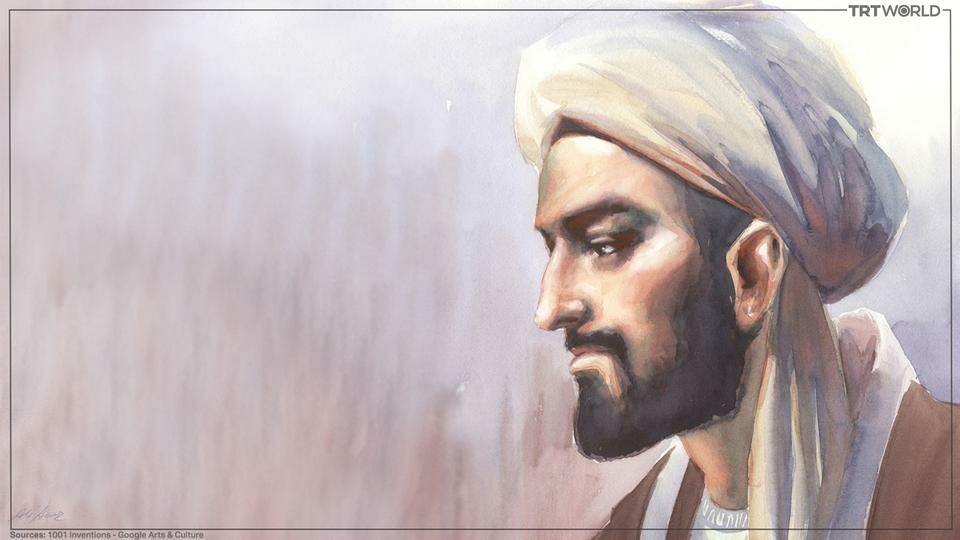
By Ayesha Omar

In 1375, an ambitious and adventurous political administrator and erudite thinker from North Africa moved to a remote desert area of Algeria to live amongst the Berber population as part of a research interlude. In this solitary environment, he applies the skills of inductive reasoning, and a quarter of a century of insights and observations to understand the methods which govern historical and sociological study.
Emerging some four years later, he presents one of the greatest philosophical treatises ever produced in human history. This text, The Muqaddima (Prolegomena), is a detailed exposition of the theoretical foundations of history, a survey of Islamic civilisations, and an account of arts and sciences. It is authored by the extraordinary Islamic thinker, Abd- ar -Rahman bin Muhammed Ibn Khaldun, who produced a comprehensive theory of human civilisation in the fourteenth century.
Ibn Khaldun started his life as a career diplomat, holding bureaucratic roles under the Merinid, Hafsid, and Nasrid dynasties. Trained in Islamic Law, logic, philosophy, and literature, he also memorizes the Qur’an and masters various modes of recitation. As a government official, he perfected the art of writing letters and documents serving as a patron of various imperial courts of his era.
Curiously, Ibn Khaldun’s personal biography coincides with two important events: a period of Islamic decline and political disintegration with the fall of the Abbasid caliphate, and the Bubonic plague, a sweeping epidemic that afflicts much of the Muslim world. As a result of the latter, Ibn Khaldun suffers personal losses remarking: “The notables, the leaders and all the learned died, as well as my parents on whom be God’s mercy”.
Ibn Khaldun’s magnum opus is dedicated to a systematic understanding of history. The “inner meaning” of history he suggests involves speculation and an attempt to ascertain the truth through “a subtle explanation of the causes and origins of existing things and a deep knowledge of the how and why of events”.
This historiography of civilisation he argues is philosophical as “history is firmly rooted in philosophy” and thus “deserves to be accounted as a branch of it”. The Muqaddima is a detailed consideration of history and Islamic societies encompassing themes of nomadic societies, states, caliphs, kings, trade, sciences, and arts. Ibn Khaldun posits that all civilizations are cyclical in nature, representing periods of growth, peak, decline, and eventual collapse. He tests this theory of the natural progression of human societies across his various case studies.
What is astonishingly original about Ibn Khaldun’s ideas is his argument that the object of history is the knowledge of the social organisation. This sociological aspect centers his central insight, the concept of asabiyya which refers to the group solidarity or social cohesion that binds together members of a community.
Ibn Khaldun observes that asabiyya is crucial for the rise and success of civilizations and tends to weaken over time, leading to the decline of societies. This solidarity, for example, is what binds the tribes of the Bedouins together, allowing them to withstand the harsh circumstances of desert life and endure its everyday inconveniences.
Asabiyya, Ibn Khaldun posits is crucial for all societies and is the founding principle for military strength and virtue. Ibn Khaldun appreciates the simplicity of the life of Bedouin, arguing that in cities asabiyya is quickly eroded as people are corrupted by luxury and the self-interest of their own worldly desires, corrupting group feeling. For Ibn Khaldun, most dynasties decline over five generations as various social factors interact in complex ways to shape the trajectory of civilizations over time, ultimately leading to their rise and fall in accordance with the Law of asabiyya.
Fundamental to Ibn Khaldun’s view of human nature is the idea that human beings are shaped by their environment, a somewhat radical argument for his time. Yet as the scholar Robert Erwin suggests, Ibn Khaldun is also a pious and moralistic thinker and religion is clearly embedded in his view of the order of the world. Nonetheless, his ideas can be thought of as proto-Hobbesian, in that he argued for the necessity of a strong political authority because of the excesses of human beings.
There is no doubt that Ibn Khaldun was a deeply individual thinker with a very clear and distinctive view of human society and its evolution. While his ideas had limited influence in Europe during his lifetime, they gained major recognition in later centuries. That his ideas are now considered a precursor to thinkers like Machiavelli, further signifies the fascinating and striking originality of his intellectual project.
Dr Ayesha Omar is a Senior Lecturer in Political Studies at the University of the Witwatersrand and currently a British Academy International Fellow at SOAS, University of London. She is working on a new book project on Black Intellectual History in South Africa.


